Half-Dozen Candidates in Highly Competitive Chappaqua Board of Ed Race
News Based on facts, either observed and verified directly by the reporter, or reported and verified from knowledgeable sources.
Like many school districts throughout the region, there is plenty of interest in this year’s Board of Education election in Chappaqua. Six candidates submitted petitions last month to run for two seats that carry the full three-year term and another that will complete the unexpired term of former board member Victoria Tipp who resigned at the end of 2021 after her election to the New Castle Town Board.
The two incumbents, current board President Hilary Grasso, who is vying for a second term, and Warren Messner, who is seeking a fourth term, are being challenged by Dana Gorelik, Ryan Kelsey, former longtime board member Jeffrey Mester and Kristin Miles. The top two vote-getters will win the two three-year terms and the third-place finisher will serve the unexpired term, which runs through June 30, 2023.
Dana Gorelik
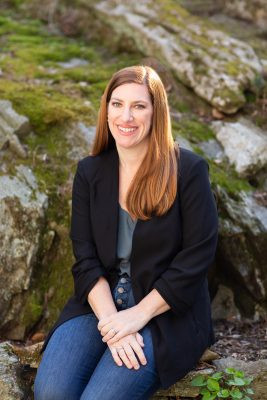
Children, education and community service have been three of Gorelik’s passions for most of her life, from the time she was a babysitter and volunteering at a school for autistic children while in high school. A family and estate planning attorney who currently works for two banks serving as a fiduciary on a trust platform, running for the Chappaqua Board of Education was the next step. (A requirement for work obligates her to state that all of her comments are in her personal capacity.)
“As I became more involved in the community here, I started to meet people and talk to people and it was an area that interested me as a way to serve the community and be involved,” Gorelik said.
She commended the district for being able to bring many students back to school for the start of the 2020-21 school year, less than six months after the onset of the pandemic. Gorelik said she is eternally grateful for Chappaqua emerging as one of the leading districts in that effort.
However, as good a job as the district did there are likely lingering effects, Gorelik said. She believes that the academic consequences of COVID-19 may have a greater impact on the younger children while social and emotional issues may surface for the older students. The district should clearly communicate steps it is taking with parents to ensure these concerns are being addressed.
“So I would like to see addressed and communicated how are we dealing with this because there might be really great things in place and we just don’t know as parents what those things are,” Gorelik said. “Certainly, if there are things we could be availing ourselves to that would be good to know as well. But I don’t think that anyone thinks it’s okay to kind of just keep trudging on as if nothing happened.”
A major academic-related debate this year has centered on the district’s introduction of universal eighth-grade algebra starting in 2020-21. Gorelik said the issue left her with questions and concerns, including whether teachers were consulted on the issue, since at public meetings there haven’t been comments from faculty, and the number of students being tutored in algebra seems excessive.
It was recently revealed that more than 90 eighth-graders are being formally tutored, representing close to one-third of the grade. That doesn’t take into account how many parents who may be serving as their child’s tutor, she said.
“I would like to see parent groups where parents can get feedback before changes are made,” Gorelik said. “Teachers, parents they should be heard. We have amazing teachers in this district, we should know what they have to say about things, and that doesn’t mean the parents dictate the outcome, but I think that by giving everyone the ability to have open lines of communication, it will make things better.”
Gorelik said the focus on diversity, equity and inclusion is an important step to take for all students to feel welcome in school. She recently met Philip Marcus, the district’s director of diversity, inclusion and wellness. Stressing open lines of communication will be critical in seeing the district succeed in maximizing inclusivity.
While the district is planning the replacement of three roofs in the short term, Gorelick would like to explore more solar power for the district. She would also like to see the district plan for unforeseen costly larger infrastructure improvements in the future.
During the past two years the district and the town were embroiled in a debate regarding issues related to the Form Based Code. Gorelick said the district handled the situation the best it could.
If elected, Gorelik would like to look into the feasibility of offering a foreign language in elementary school, why so many children, even in elementary school, are being tutored and to create parent focus groups to increase communication.
“I think we can do better with having a more uniform method of communicating to parents what their kids are learning,” she said.
Hilary Grasso
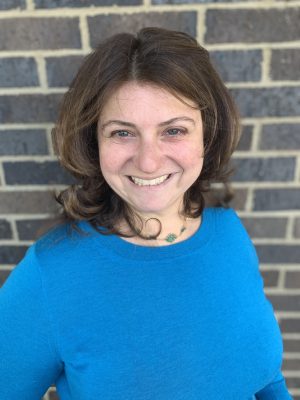
Grasso, an education attorney who is currently not practicing, said she has enjoyed her three years on the board and would like another opportunity to address issues facing the district, some of which had to be put on hold as school officials had to tend to needs related to the pandemic.
Addressing the results of the special education audit the district undertook and looking at the possibility of a later high school start time are two of the matters that Grasso would like to see tackled if elected to another term.
Grasso is proud how Chappaqua was able to get so many of its students back to in-person instruction as quickly as it did for the 2020-21 school year. So far, the district has performed well on its standardized testing, she said; however, there will almost certainly be impacts down the road for some students.
“There are a lot of services that are really hard to deliver virtually, but again, as the kids returned to school, we really tried to offer those supports to help them,” Grasso said. “So I really think it’s important for us to be conscious as a district – every district does – that we don’t know what some of the long-term educational effects on our children (will be).”
Regarding the eighth-grade algebra discussion, Grasso said she wants to analyze the data, particularly from this year as opposed to 2020-21 when students were returning from virtual learning, before the district makes any decisions on the program. That analysis is not just related to scores but how much outside help students may be receiving for the class.
Possibilities include students opting in or to have everyone enrolled with a chance to opt out, she said.
“What I’ve said to parents who are concerned about this is there’s nothing set in stone, but I don’t want the board to advise the administration to make a decision,” Grasso said. “I don’t want the administration to make a decision based solely on the COVID year (2020-21) without seeing what’s happening this year, nor do I want parents to feel like a decision’s been made and there’s no chance to change that decision.”
Grasso described the district’s diversity, equity and inclusion work as “crucial.” While Chappaqua has done a very good job in addressing the issue over the past two years, one area where it must improve is communicating with parents on what the schools are doing on the issue.
Students must always feel valued as part of the school community, she said.
“What is really important to me is that all of our students feel like their voice is welcomed and respected,” Grasso said. “I don’t even want to have a classroom situation where any of our students feel like their voice is not welcomed, that they don’t have a right to speak up in the classroom, that their opinions don’t matter.”
Currently, needed building work includes roofs. With multiple entry points, the district continues to look at how to ensure security at the high school, Grasso said. Safety improvements have been made at the elementary and middle schools, she said.
While the discussion surrounding the Form Based Code highlighted some tensions between the district and the town, much of that acrimony could have been avoided had there been better communication and attention hadn’t been diverted because of the pandemic, Grasso said. The situation was a bit unique because the district was an interested party, she said.
In the next three years, Grasso said in addition to exploring a later high school start time, she would like to see the district more environmentally conscious.
Always looking to improve programs is a constant.
“We want to make our curriculum and our academic programs as strong as possible,” Grasso said.
Ryan Kelsey
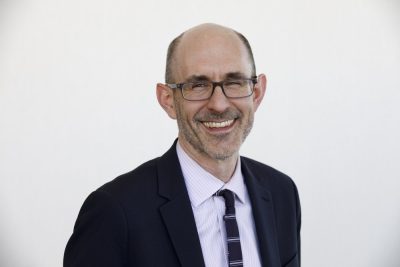
As the father of two middle school students, Kelsey is personally vested in the Chappaqua School District and wants to see the best possible outcomes for his children and their peers. For about 13 years, Kelsey was a faculty member and administrator at Columbia University helping to lead research on teaching and learning innovation and taught courses on educational technology.
Currently, he is executive director of a New York City private charitable organization that helps the unemployed and those in low-wage jobs find better opportunities.
“I can be an effective bridge between the district and the parents who have questions or concerns or new ideas that will help us move forward,” Kelsey said. “So I just want to be of service to my community in a deeper way.”
Kelsey said the district did as well as any district faced with the extreme pandemic-related circumstances. Some students had better experiences than others navigating through the virtual learning and the changes that needed to be made when the children returned to school, such as the pods that were formed. Even his own kids had different experiences.
He would like to help the district take what’s been learned using technology and examine how students can learn in new ways.
Experiences were also different for students taking eighth-grade algebra during these last two years. For Kelsey’s son, a current eighth-grader, algebra worked well, but that wasn’t the case for a number of students.
As the son of a math teacher, Kelsey said he felt strongly that the teachers in the trenches should have been given the chance to provide their input to parents, especially since the district attracts some of the finest teachers in the country.
“We didn’t get to hear from teachers about how they think it’s worked and what adjustments might be needed going forward,” he said. “I just don’t mean eighth-grade teachers, but I’d like to hear multiple teachers’ point of view as well.”
Kelsey would like to see as many eighth-graders as possible take algebra because young people entering STEM fields are going to need five years of high school math. A focus should be how best to prepare students to take eighth-grade algebra. Collecting data to better understand what can be done for struggling students or to consider alternatives needs to be done, he said.
As the father of two adopted children from Ethiopia, issues of diversity, equity and inclusion are of paramount importance to Kelsey and his family. Thus far, his children have had a good experience but there are other families where that has not been the case.
“I see that as a long-term required effort the district needs to do so we’re just getting started doing that good work, and I’m really pleased by the potential that’s there and the commitment I hear from (Superintendent of Schools) Dr. (Christine) Ackerman to proceed with this work,” Kelsey said.
But it will take sustained commitment to the goal, and not just on the part of staff and faculty. Students and families have a responsibility as well.
“It just has to happen if we’re going to have graduates who can operate in a multicultural, diverse world,” he said. “This is one of the things that college admissions offices are looking to.”
Kelsey said there is always room to improve the communication and transparency between the town and the school district after tensions were frayed over the Form Based Code debate. It is well-known that families come to Chappaqua for the schools; however, the school community would benefit from having more mixed-use residential opportunities to increase the economic and cultural diversity of the district, he said.
Other topics that Kelsey would like to see the district address is the future landscape of college testing and AP courses, and if there are significant changes, how can Chappaqua help their students compete for placement in some of the best colleges and universities.
Varied backgrounds and professional expertise on the school board is crucial for the district.
“I think we want board members who have a variety of different expertise and perspectives into the world that will bring these insights to our district as well as people who are good listeners, consensus builders, fiscally prudent and get people that express their viewpoints and translate issues for all different stakeholders,” Kelsey said.
Warren Messner
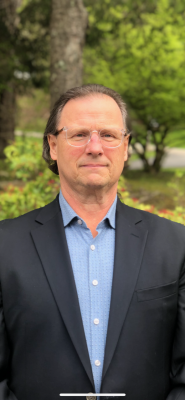
Messner has deep roots in the town and the area as well as having multiple relatives having served as professors or teachers, including his mother.
“Education is sort of like the family business, so I guess this is my way of giving back to the community and education,” said Messner, who retired from IBM a decade ago after working there for 31 years.
He said he derives satisfaction of having a role in a great school district and the importance of providing a great educational foundation for success. Equally important is having students learn how to learn.
It’s impossible to deny that the pandemic had an impact on students, faculty and the community, Messner said. The district implemented RULER a couple of years ago, which incorporated social-emotional learning in all classrooms, he said.
Another step taken was for students to meet and connect with their teachers five minutes before the start of classes. There’s plenty of support and intervention with constant analysis to make sure all students are okay.
“So they’re really taking a very focused, proactive approach to understand what the kids are going through,” Messner said.
During remote learning, the district made certain that all children had access to appropriate technology, and where hot spots were needed, the director of technology provided students with that so their learning could continue, he said.
“The administration really worked hard to make sure all the kids were covered and I’m pretty proud of that fact,” Messner said. “I didn’t do much about it, but the fact that they did it, I think people think board members do all of the work. We provide the resources and the support to make sure it gets done.”
This is the second year there has been universal eighth-grade algebra. Messner said feedback that he’s received is that a one-size-fits-all approach may not benefit all students. What the district may have to do is provide a program that meets the individual learning levels of each student, he said.
“Like anything else, you have to keep revising what you’re doing,” Messner said. “That’s what we’re good at. You do something, it works and how do you improve it, and maybe it doesn’t have the desired result. How do you go and change that? Because you’ve done something doesn’t mean it’s set in stone.”
Messner acknowledged the district faced some tough days after the racist TikTok video surfaced in June 2020. The following week there was a four-and-a-half-hour virtual meeting where members of the community, including students and alumni, demanded a change of culture.
From that difficult forum, consultants were hired and professional development of faculty and staff was initiated, steps that had to be taken to address the problem, Messner said. By the fall the district hired a director of diversity, inclusion and wellness. Greater communication on the steps that are taken is needed.
“We’ve had conversations regarding the work we’re doing and the entire board is supportive of this work, which is good, but sometimes community members they don’t understand, Messner said.
Assistant Superintendent Dr. Tony Sinanis has been working on attracting a more diverse teaching staff, something that will take more time to achieve, but the district has been attracting a wider range of candidates.
Next month, Chappaqua is starting its next five-year building condition survey, Messner said. That survey will help the district devise a 10-year infrastructure plan in hopes of avoiding surprise projects and expenses.
Meanwhile, the most pressing need is replacing several school roofs. The board had contemplated a proposition this year for the Westorchard Elementary School roof.
Tangling with the New Castle Town Board last year over the controversial Form Based Code was difficult. Messner said the district doesn’t want itself thrust into town issues but the board also has to answer to its taxpayers. Communication will need to be improved in the future to avoid further problems, he said.
In another term, Messner wants the board to review the district’s strategic plan it formulated a couple of years ago, look at potential adjustments to the special education program, continue work on diversity, equity and inclusion and encourage more community involvement.
“I think I have a lot of creativity and consensus building to solve these complex problems that we come up with,” Messner said.
Jeffrey Mester
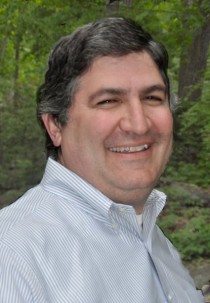
Mester, a former four-term Board of Education member, returns as a candidate three years after he was defeated. The time away has given Mester a community member’s perspective into the board.
Aside from enjoying the service, Mester said the district is at a critical juncture. He believes there are candidates on this year’s ballot who are making their candidacy political, the wrong way to approach public education.
“A school board should have as its primary focus providing the best, most appropriate education in reading, writing, math, science, physical education and the fine arts,” said Mester, a self-employed equities and derivatives trader. “The schools should be providing opportunities for its students to learn academically and thrive socially. It should be free of political ideology and interest group agendas.”
He said he is a compelling candidate because he knows more about the budget and the budget process than anyone running, is the most transparent candidate, has advocated for more community input, is a supporter of diversity, equity and inclusion and has a track record of supporting special education.
Mester refused to second-guess the decisions made by the district regarding its decisions since the pandemic is such a unique situation. At some point, officials should conduct a review and analysis of their decisions, he said. Attention must now be paid to how students were affected academically and emotionally. The district should reach out to all students to learn of their concerns and needs, Mester said.
Regarding the eighth-grade algebra debate, Mester said he personally loves math, but board members are not intended to be experts on curriculum and teaching. It appears wrong to teach one level of math to all.
“I think by the eighth grade and by the time students are learning algebra that there is a learning stratification and that advanced students should be challenged with advanced work and struggling students should be given additional help and resources,” Mester said. “The tendency to treat all students the same actually hurts all students especially the majority in the middle.”
However, by high school there should be a way for students to try advanced classes if they were not previously selected.
Mester said as an older White male, it was not for him to assess the job the district is doing regarding diversity, equity and inclusion. That should be done by the affected students. However, the district must continually strive to make every student feel welcome, and not only Black students but all others from different groups.
A concerted effort is being made to diversify the district’s staff, Mester said.
“The district actively recruits educational staff of all backgrounds, but especially minorities and protected classes,” he said. “While the district has made progress toward its goal, it still has much work to be done.”
Regarding the director of equity, inclusion and wellness, three questions need to be answered: Is there a need for the position? Is the current director the right person for the job? How is success measured?
“The district, through the budget process, has indicated that the director…is a higher priority than the seven teaching positions that are being eliminated,” Mester said. “If that is the case, the district, the board and the administration should be darn sure that the person in the role is effective.”
Mester criticized the district’s change in philosophy of being reactive to facilities repairs rather than trying to identify problems ahead of time. While the $43 million bond in 2016 addressed many needs, a strong maintenance program is just as critical.
Mester said it’s imperative the town and school boards work collaboratively but there are times when their interests are not aligned. That was the case with the Form Based Code discussion.
“I do think avoiding acrimony is the right path to take, but sometimes avoiding conflict is not possible,” Mester said.
If elected, Mester would like to re-establish fiscal discipline, encourage a culture of open dialogue instead of trying to limit it at public meetings.
Kristin Miles
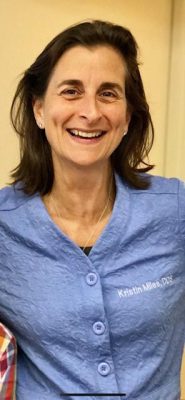
Miles, a pediatric dentist, moved into the Chappaqua School District about seven years ago. When growing up in Freeport, Long Island, Miles saw her mother active in the PTA and her father served on the library board.
“I feel like I’ve been here long enough and getting enough opinions with my kids and with other parents, (that) the time was right to maybe jump in and make a difference when I couldn’t feel that way five years ago after being here a couple of years,” said Miles who has served as a PTA member, a Girl Scout leader and with the Afterschool Enrichment Program. Her family has also served as hosts for a program that brings children up from the city for part of the summer.
The administration did extremely well to return students to school following the pandemic’s onset in 2020, Miles said, an advantage enjoyed more than children in most other districts. The one issue she quibbled with was the lifting of mandated mask use. In Miles’ estimation the district gave the go-ahead to take off the masks too soon and cases are on the rise again.
Miles has a personal interest in the future of eighth-grade algebra because her son will be entering that grade next year. Similar to a few of her fellow candidates, Miles questioned why teacher input, at least publicly, was absent from the process. Experts presented good reasons for introducing the subject in eighth grade, but she questioned why so many parents were concerned.
“It seems to me that all these parents that were there (at meetings) were not happy with it. Where were the parents who are happy with it if the numbers guys were happy with it?” Miles said.
At the last board meeting, it was revealed that about 90 eighth-graders were being tutored, and that doesn’t take into account parents and older siblings who are likely helping out with the task, she said.
Miles said the district’s diversity, equity and inclusion work is an important task. She was looking forward to an upcoming meeting with Philip Marcus, the director of diversity, inclusion and wellness. His tasks and the goals of the position must be clearly communicated to the public, in particular to answer the question of why he’s receiving a full-time administrator’s salary.
“Let him do his job for a few years,” Miles recommended before the district and community fully evaluates his impact. “When you pay someone well you can demand more of them.”
Miles would like to review whether later start times are feasible, particularly for middle school and high school students. She saw with her own child that with a COVID-19 scheduling adjustment he was getting on the bus 15 to 20 minutes later than when he was in fifth grade. For her son, “just that 20 minutes was like an hour-and-a-half.”
“They did it in Briarcliff. I know it’s a smaller district. They did it in Dobbs Ferry a few years ago; I think it’s also a smaller district,” Miles said. “In my discussion with Dr. Ackerman she said they’ve done some feasibility studies on that and the results were somewhat promising.”
She would explore changing the two middle school buildings from 5-8 schools to where each student district-wide would attend one building in grades 5 and 6 followed by grades 7 and 8 at the other middle school.
“I do feel like those poor Roaring Brooks kids were torn apart to go to their separate middle school, and there’s such a difference between fifth and eighth grade,” Miles said of the rationale to consider the concept.
Miles would like to see teachers feel a little more comfortable being able to level with parents if they see an area of concern with their child. Perhaps larger issues, academically or otherwise, can be addressed before it becomes a problem.
She looks forward to maybe having a chance to be part of a highly rewarding service to the community.
“I like to be involved in my community,” Miles said. “I like to get to know my neighbors.”

Martin has more than 30 years experience covering local news in Westchester and Putnam counties, including a frequent focus on zoning and planning issues. He has been editor-in-chief of The Examiner since its inception in 2007. Read more from Martin’s editor-author bio here. Read Martin’s archived work here: https://www.theexaminernews.com/author/martin-wilbur2007/
